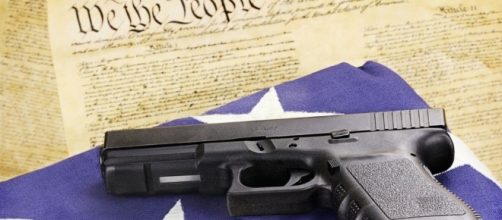The shooting of five Dallas Police officers, sparked by the deaths of black men in Minnesota and Louisiana, is the most recent event in the ongoing debate about gun control in the United States. As is widely known, the Second Amendment to the United States Constitution states that "A well regulated Militia, being necessary to the Security of a free State, the right of the people to keep and bear Arms, shall not be infringed." However, this Amendment has come under continuous criticism from gun-control advocates, criticism that has become more potent in the aftermath of mass shootings, such as the massacre of 49 people in an Orlando nightclub in June 2016, and perhaps most notoriously, the murder of 20 students and 6 staff members at Sandy Hook Elementary School in Connecticut in December 2012.
During his time in the White House, President Obama has committed his administration to reducing gun violence, primarily through common-sense executive actions, including the implementation of backgrounds checks on potential owners of firearms. However, the United States Congress, currently dominated by the Republican Party, has consistently voted against the Administration on this issue. There are numerous potential reasons for this, however to understand one of the more controversial explanation, we must look back to twentieth-century Europe.
Adolf Hitler, Nazi gun laws and the Holocaust
In November, 1938, Adolf Hitler passed the ‘Regulations Against Jews' Possession of Weapons’, which effectively prohibited Jews from acquiring, possessing or carrying firearms and ammunition, with violation of these provisions to be punished with imprisonment and a fine.
This regulation has been used by pro-gun advocates in defence of the Second Amendment, as they draw a direct line between gun control in 1938 and the implementation of the Final Solution in the 1940’s. Pro-gun advocates in the United States thus argue that the Second Amendment was adopted in 1791 specifically to protect the Republic against dictators.
They suggest that gun control prevents citizens from resisting dictatorship, and that Adolf Hitler has proved them right in this respect, as they ask ‘What would have happened if Jews in Nazi Germany had been armed?’
The Nazi gun control theory
This argument does perhaps have some resonance in the US Congress to this day, as supporters of this so-called ‘Nazi gun theory’ draw parallels between the Nazi gun laws of 1938 and US federal control regulation, such as the Brady Handgun Violence Prevention Act of 1993, which made federal background checks on firearms purchasers in the US mandatory.
However, this theory hardly stands up to historical analysis. Firearms were highly regulated under the Weimar Republic following the end of the First World War, both in an effort to comply with the Treaty of Versailles, and to stabilise a German nation reeling from military defeat and running amok with armed and trained militias, such as the right-wing nationalist Freikorps. This puts doubt upon the link between gun control and the genocidal massacre of European Jews, the majority of whom didn’t have access to firearms when the Nazis came to power in the early 1930’s.
This argument therefore is not only historically inaccurate, but it is also clearly offensive to Holocaust survivors and their families. The Nazi gun control theory thus provides yet another example of how history is manipulated by people today in order to further their own causes.

